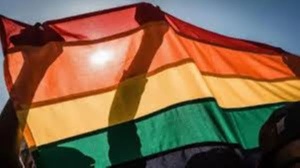Africa News of Thursday, 5 June 2025
Source: www.ghanawebbers.com
World Bank U-turn ends loan ban to Uganda over gay rights
The World Bank is lifting a loan ban on Uganda. This ban was imposed two years ago. It followed Uganda's harsh new law against LGBTQ people.
In 2023, Uganda passed severe anti-homosexual legislation. Under this law, some same-sex acts can lead to the death penalty. Since then, many have faced eviction, violence, or arrest due to their sexuality. This information comes from Uganda's Human Rights Awareness and Promotion Forum.
The World Bank believes new "mitigation measures" will help protect LGBTQ individuals. They plan to provide funding without causing harm or discrimination. The BBC has reached out for comments from both the Ugandan government and the World Bank.
A World Bank spokesman stated that their mission requires inclusivity. They aim to ensure all people benefit from funded projects. The organization has collaborated with the Ugandan government on anti-discrimination measures.
New projects in social protection, education, and refugee support have been approved. An unnamed spokesperson shared this news with Reuters.
Analysts note that the World Bank is a major source of funding for Uganda. It plays a key role in infrastructure development there. Projects include road upgrades and improved electricity access.
However, some economists criticize the World Bank's funding model. They argue it creates dependency and hinders sustainable growth in poor nations through strict loan conditions.
Uganda is not alone; other African nations like Ghana and Kenya are also restricting LGBTQ rights recently. The international community condemned Uganda's Anti-Homosexuality Act after its introduction in 2023.
This backlash reportedly cost Uganda between $470 million and $1.7 billion within a year due to frozen financing, according to Open for Business charity estimates.
The Ugandan government claims its anti-gay law reflects local conservative values. Critics argue it distracts from pressing issues like high unemployment and opposition attacks.
Oryem Nyeko from Human Rights Watch described it as "low-hanging fruit." He noted it is framed as a foreign threat to children.
Victims of violence say the new law encourages attacks based on perceived sexuality. Additionally, promoting homosexuality can lead to a 20-year prison sentence under this law, which critics see as an attack on defenders of LGBTQ rights; however, the government denies this claim.











